Artist Robbie MacIver presents a collection of his artwork, created using both stained glass and fused glass techniques. Enjoy this collection and see more by visiting his website.
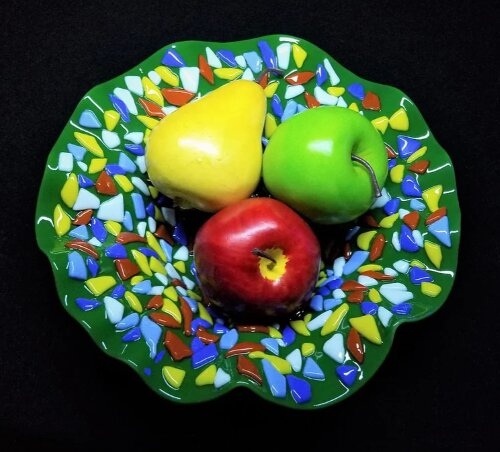
“Garden Bowl” fused glass, 10” diameter x 3”
When I think about my glass art, I can readily see that it is a continuation of my lifelong interest in building and creating things coupled with the desire to continually learn and discover how things work. Early in my professional career, I was drawn to computer programming because it presented a problem to which I was tasked with designing and building a solution. The element of discovery was also present in the need to imagine and account for the unexpected.
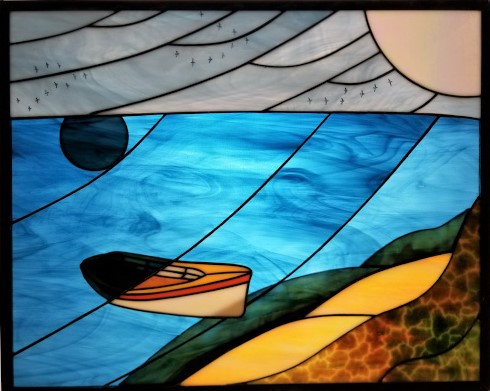
“Desolate Night” stained glass, 20″ x 16″
As I neared retirement, I became interested in stained glass. It gave me new areas in which to learn the “what and the how” but also allowed for the discovery of “why.”
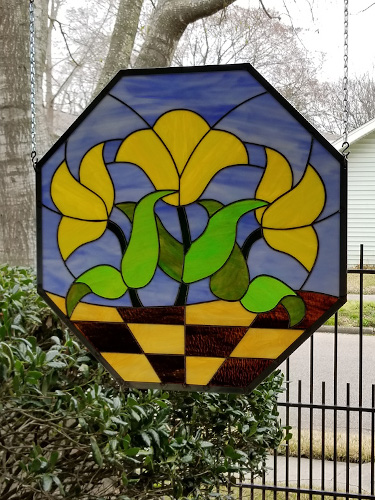
“Tulip Basket” stained glass, 23” x 23”
At the basic level there are the techniques of the craft such as cutting glass, shaping it to a particular fit and soldering. Beyond the craft however, comes the intangibles of design—the use of lines, color palettes, textures and shading.
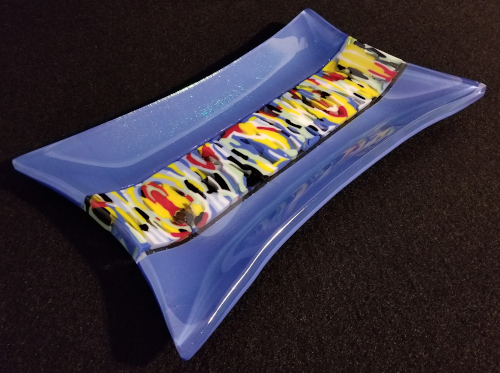
“Spring Bouquet” fused glass, 11” x 7” x 1”
Today, my stained glass panels lean toward nature, but in the spirit of discovery branch to other areas as well. What is consistent across them are precise lines and the purposeful use of colors, textures and shading.
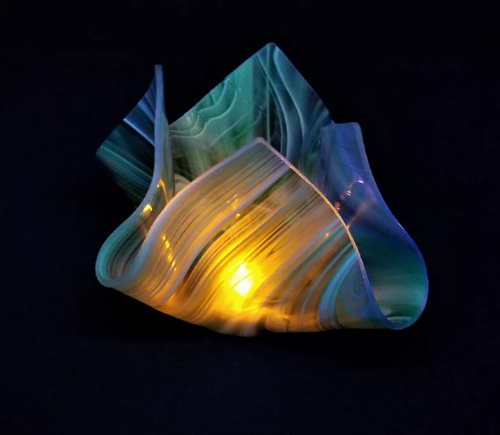
“Free Form Vase” fused glass with light, 8” x 8” x 6”
I spend considerable time with the original design work, drawing and redrawing until have what I want. Then I spend considerably more time selecting the specific glass to fulfill the design. In the end it all comes together with the first viewing of a new work with natural light transmitted from behind.
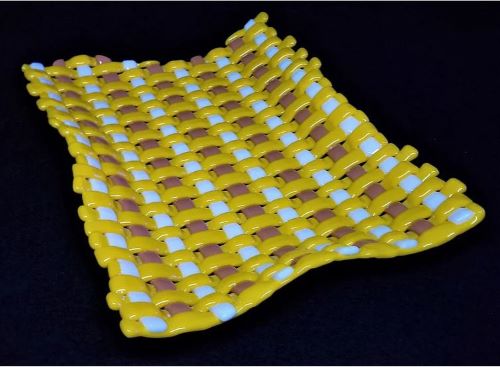
“Woven Plate” fused glass, 10.5” x 7.75” x 1.25”
Like many stained glass artists, I eventually expanded into creating kiln-formed, or fused, glass. Many of the same technical skills are required in addition to the consideration of three-dimensional shapes and the application of heat work. Glass is a very poor conductor of heat, so a good understanding of how glass melts is key to success.
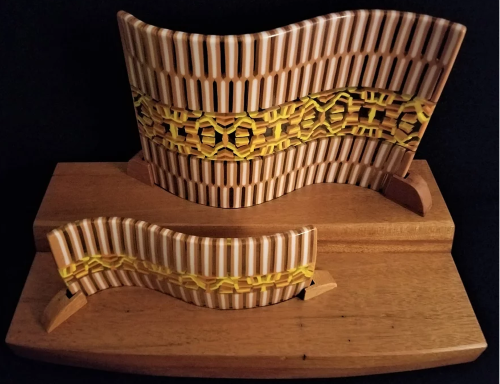
“Autumnal Wave” fused glass, 18” x 9” x 7”
Starting with the end in mind, my kiln-formed glass work begins by selecting the shape—either a sculpture form or a slumping or draping mold—to form the final product. Next, I choose the color palette and the desired level of fusing. Do I want individual pieces of glass to fuse into one smooth piece, or do I want some relief with the edges of the individual pieces still apparent?
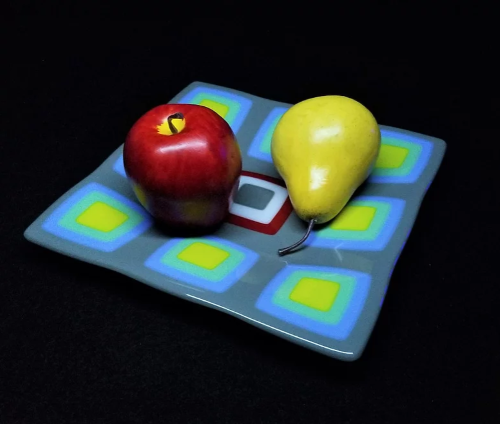
“Whimsey Squares” fused glass, 8.75” x 8.75” x 2”
I’ve come to learn that firing schedules to fusers are a bit like putters to golfers. Everyone follows the same principles, but everyone has their favorite approach. Each firing is a learning experience because the exact color combination and type of glass going into the kiln is never the same. Therefore, the result is never the same.
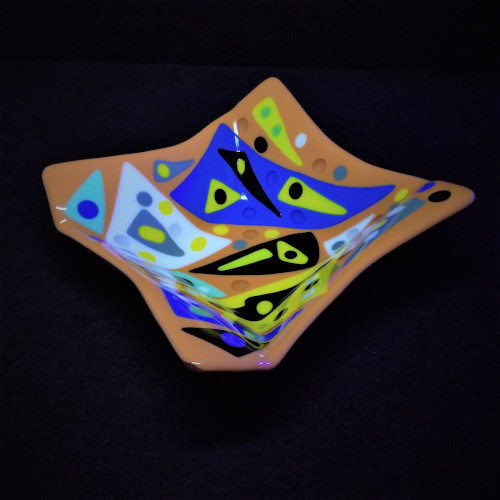
“Origami Abstraction” fused glass, 9” x 9” x 3.5”
That is the thrill, as well as the agony, of opening the kiln after the completion of the firing program.
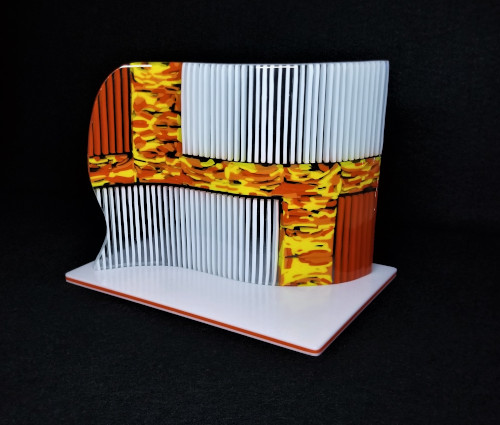
“Fire” fused glass, 10.5” x 7.25” x 8.5”
Throughout this journey, I am thankful to be learning new things and am ever more appreciative of the element of serendipity that is a part of all creative endeavors.
Artist Robbie MacIver invites you to follow him on Instagram, Facebook and LinkedIn.


Speak Your Mind